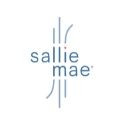What is an average student loan interest rate?
It is necessary for students seeking loan from financing parties to be aware of the interest rates, how to calculate the accured charges, steps to be taken to avoid huge interest rates and the long term consequences that may arise if these are ignored
Updated by Martin Paul on 20th November 2019
Does it seem fair if you have to pay a whopping extra amount of $10,000 for a 7% interest on a 15-year tenure for $50,000 loan compared to a borrower who is taking out the same loan with a 5% interest rate? I think not.
The cost of financing education usually varies with respect to countries and institution and most students seeking entry fail to pay close attention to the interest rate documented by the lending party. This failure can lead to the payment of huge interest in the long run which could have been avoided if proper knowledge about the deal or relevant background study and research was carried out in the first place.
Let's run through the different interest rates offered by both the federal government (different federal programs' rate) as well as the private funding institutions
Table of contents
- What is Interest?
- Average interest rate on Federal student loan
- Average interest rate on private student loan
- How cosigners affect student loan interest rates
- Best interest rates for student loans
- Know your rates before you owe
What is interest?
Interest is usually paid to a lender as a cost of borrowing money. Interest is then computed as a percentage of the unpaid principal amount (When it comes to borrowing, the principal amount is the initial amount borrowed).
For us to establish a broad foundation about interests and rates, keep in mind that there are two kinds of loans, the Federal student loans (offered by the federal government) and the private student loans (offered by private lending companies). Unlike other forms of debt like the credit card and mortgages, the Direct Loans (a kind of Federal student loan) are daily interest loans. This means that the interest gets accrued on a daily basis (accumulates).
Depending on whether your loans are subsidized (federal loans without daily interest accumulation) or unsubsidized (fixed-rate federal student loan), you may or may not be liable to pay the interest that accumulates during all the repayment cycle.
Average interest rate on Federal student loan
A recent study shows that from 2006 to 2019, the average federal student loan were 4.81% for undergraduate degree student, 6.38% for graduate students and 7.44% for PLUS loan borrowers.
The interest rate on your federal student loan usually depends upon the kind of loan that you have and when the funds for that loan were disbursed.
Once you opt for a Federal student loan, the rate is immutable and becomes set for life but the rates for new borrowers are annually adjusted.
Loan Limits
It should be noted that there is an aggregate limit to how much money a student may borrow on federal loans. Undergrads can only borrow up to $57,500 in total and no more than $23,000 of that can be a subsidized loan. Graduate students can borrow up to $138,500 and no more than $65,500 can be subsidized.
A graduate loan amount could refer to any money borrowed to obtain an undergraduate degree
Average interest rate on private student loan
Sometimes the federal student loan isn’t enough. This is where private student loans come into play, which could help you supplement the gaps between federal loans and personal funding. Unfortunately and unsurprisingly, these rates tend to skew higher than standard federal student loans, but can still remain close to the loan rates offered by the PLUS student and parent loan programs.
The rates on private student loans vary among lenders. The federal loan for undergraduate students generally has lower interest rates than private loans. Nonetheless, rates offered by private lenders are sometimes competitive to rates on federal loans for graduate students and parents, including the PLUS Loan scheme.
Why consider a private student loan?
While rates on a federal student loan are 'one-size-fits-all,' the private lender usually offer lower rates to those borrowers with a good credit score. Since most students seeking loans don’t have the required ‘good’ credit history and earnings to qualify for a private student loan on their own, most private student loans are co-signed by a guarantor, parent or another relative. Having a cosigner can help borrowers get a significantly lower interest rate.
However, keep in mind that the shorter the loan term, the lower the interest rate offered by most lenders. In addition, private lenders usually offer a choice of either variable- or fixed-rate loans. Borrowers taking out variable-rate loans can kick-start with a lower rate, but that particular rate can fluctuate over the life of the loan.
How co-signers affect student loan interest rates
A co-signer is essentially someone who joins you on your loan application. This person will take on the responsibility for your loan if a situation arises leading to default and not being able to repay your loan. As a result of this, your loan becomes their loan and entering into this sort of agreement is a personal, as well as a financial choice.
For instance - A borrower with a credit score of 610 would have an interest rate of 12% without a cosigner and 7.6% with a co-signer. On the other hand, a borrower with a credit score of 700 would have an interest rate of 9.31% without a cosigner and 6.15 with a cosigner.
We can see from the above example that a co-signer can help you get a lower interest rate as compared to having a loan without a co-signer.
The difference in these interest rates can sum up to tens of thousands over the life of your loan. If you do have low credit or no credit at all, utilizing a co-signer in borrowing a private loan can be of great help to your current and financial future.
Worried about college fee? Learn
Best interest rates for student loans
When going through your student loan offers, there should be some numbers to look out for. The major one is the principal loan amount. This is the amount that the lender is willing to give you. However, another important thing to consider is the APR or interest rate. But how do we spot the “good” student loan interest rate?
What determines an interest rate
Before applying for any loan, it’s quite important and necessary to understand the key factors which determine your interest rate offers. For some federal student loans such as the direct unsubsidized and subsidized loans that are received through FASFA and CSS, their interest rates are fixed by the federal or state government. These are only subject to change by Congress or Federal Law.
Considering the private student loan, on the other hand, their interest rates are determined by the concerned institution issuing the loan such as banks and college credit unions.
It is observed that the requirements and criteria that determine the student interest rates vary among lenders. For most undergrads without a job or any means of repaying the loan, a co-signer is most likely involved. This is sometimes a parent or guardian. The interest rate is determined by the borrower or the cosigner’s income, credit score, debt, and ability to repay the loan without going into default.
How to get a good interest rate
Finding a 'good' or the 'best' student loan rate may be quite a herculean task, but the banks, government and credit unions will give you different options. It is very important to look further beyond the interest rate and principal loan amount you were given.
Don’t be quick to take the first loan presented to you. By hesitating and doing your research, you stand a better chance of finding out whether that loan is the best option among other options available for you and your family.
Know your rates before you owe
In October 2011 alone, it was reported that Americans owed more money in student loans than on credit cards. It is alarming and shockings since this date, the student loan debt problem has worsened for aspiring young individuals and their families. A major cause of this dilemma can be tied to the interest rate levied on the borrower by the lender.
Making decisions
Knowing beforehand, the student loan interest rates for both federal and private student loans can help you make well-informed decisions when refinancing student loans or when applying for a private student loan. This thus saves you some money, giving you peace of mind.
Still wondering if your current interest rate is competitive? All hope isn’t lost yet as there are some things that can be done.
Eligible for refinancing
You may qualify for a refinance at a lower rate with a private lender. Do keep in mind that borrowers who are refinancing their federal loans with a private lending party would lose government benefits like access to income-driven repayment programs and the potential to qualify for loan forgiveness.
It is, therefore, necessary to compare options from top lenders without having to share any sensitive information or authorizing a hard credit pull.
It should also be noted that a student loan, whether federal or not, is a loan just like any other, which means it comes with its own pros and cons. Be sure to shop around for the very best rate possible and do the math ahead of time, rather than signing up for the maximum you can take out and pay off.
If it's possible, try to pay as much as you can from your own funds and evade as much debt as possible immediately your grace period ends. Explore and opt for the best among other funding options that can be considered such as grants, scholarships, as well as work-study at your school and other creative ways to keep the sum of your loan as small and minimal as possible.
| Minumum Credit Score | Apply in as little as | Variable APR | Fixed APR | ||
|---|---|---|---|---|---|
 | Not Available | 15 minutes or less | 2.95 | 4.74 | View disclosures |
 | 620 | 2 minutes | 5.38%-16.99%1 | 4.43%-16.99%1 | View disclosures |
 | Not Available | 15 minutes | 1.13% - 11.23%¹ (with autopay) | 3.50% - 12.60%¹ (with autopay) | View disclosures |



93.jpg)


28.jpg)
